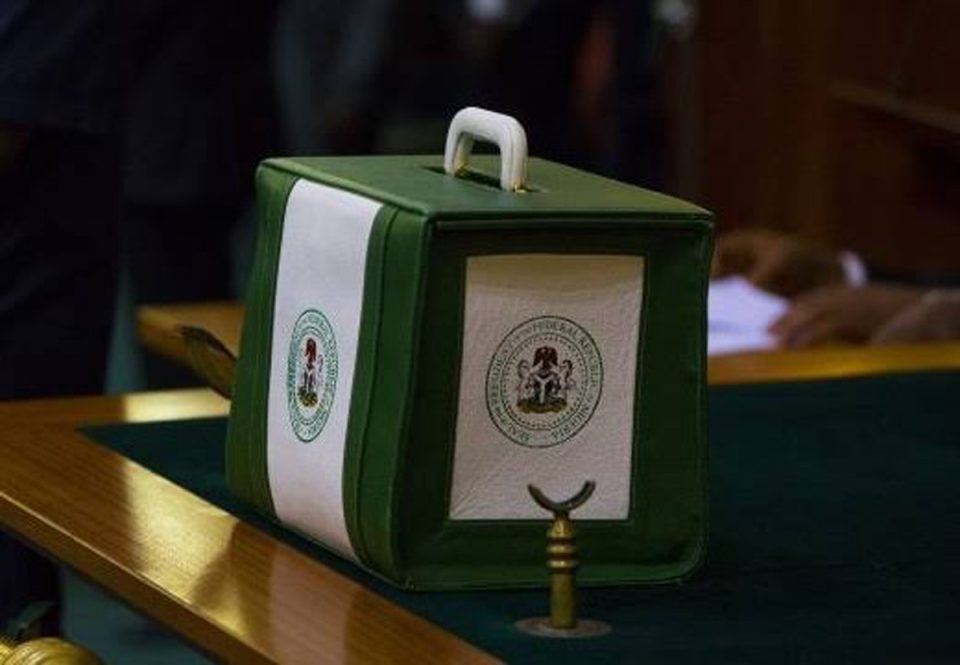Going by these developments, Nigeria’s revenue flow may have been impacted adversely with daily oil production capacity for the rest of the year significantly below the revised volume of about 1.7 million barrels contained in the proposed amended 2020 Appropriation Act which is now 1.94 million bpd.
Following the economic impact of the coronavirus pandemic, the Nigerian government had announced a N71.6 billion cut in its 2020 budget, to about N10.523 trillion as against the initial N10.594 trillion earlier passed by the National Assembly and signed into law by President Muhammadu Buhari.
Chief Sylva, who was the head of the Nigerian delegation to the meeting said with a daily production cut of about 300,000 bpd, Nigeria would now be producing 1.412 million bpd between May and June 2020 in the first phase of the group’s agreement.
He said between July and December 2020, the country would produce about 1.495 million barrels per day in the second phase of the agreement, and another 1.579 million barrels per day between January 2021 to April 2022 in the third and final phase of the agreement.
Despite the significant difference between the new OPEC output ceiling and the proposed production capacity in the 2020 budget, the minister expressed optimism Nigeria would still break even with an average of 360,000 and 460,000 bpd of condensate which OPEC production quota calculation does not usually cover.
“It is expected that this historic intervention when concluded will see crude oil prices rebound by at least $15 per barrel in the short term, thereby enhancing the prospect of exceeding Nigeria’s adjusted budget estimate now reduced at $25 per barrel and crude oil production of 1.7 Million barrels per day.
“The price rebound may translate to additional revenues of not less than $2.8 billion for the federation,” Sylva added.
Meanwhile an energy analyst and Partner at Bloomfield Law Practice, Mr.Ayodele Oni, warned that the effect of these adjustments could be multi-dimensional as the effect would lead to a reduction in the nation’s oil receipts and ultimately underperformance of the 2020 budget.
He also warned there may be implications for forex availability since oil sales is the primary source of forex, adding that a reduced budget would also imply that the economy will shrink as earnings reduce. While agreeing with Sylva that the country may recover some more grounds in the case of a rebound, Oni said Nigeria has rejigged its budget in anticipation of a possible negative COVID-19 aftermath, including a glut in global oil sales and significant drop in crude oil prices.
‘‘In the readjusted budget, oil price benchmark is $30 and the production benchmark is rebased to 1.7mbopd. Accordingly, the impact may not be severe on the budget, however there may be an impact on forex availability since oil sales is our primary source of foreign currencies. A reduced budget would also imply that the economy will shrink as earnings fall.
Strategies to mitigate economic consequences of COVID-19
On March 18, the Muhammadu Buhari administration announced some significant changes to its 2020 budget as part of measures to contain the effect of coronavirus on the nation’s economy.
The Minister of Finance, Budget and National Planning, Zainab Ahmed, said the government will implement a 50 per cent cut in revenue from privatisation proceeds.
Ahmed said the Federal Executive Council approved reductions in capital budget by 20 per cent, and 25 per cent cut in recurrent expenditures.
She said: “I’m pleased to report that just yesterday President Buhari approved a number of measures for us to implement. These measures include the introduction of PMS price modulation mechanism. The reason being that at the low crude oil price of $31 to $32 per barrel, there’s no underrecovery. The underrecovery is right now zero, in fact, we are at an overrecovery stage, meaning the PMS price will be reduced to reflect the reduced price of the crude oil in the international market.”
Consequently, Nigeria’s oil firm, NNPC, announced a reduction in petrol price from N145 per litre to N125.
“Mr President also approved that we should cut down on the size of the federally funded upstream projects of the petroleum sector. The reason being that we want to be able to get more revenue, by less deductions from NNPC.
The reduction of crude oil price from the $57 per barrel to $30 means that we are going to get much less revenue, almost 45 per cent less than we planned hence we have to amend a lot of projections in the budget as well as in EMTEF to reflect current realities,” the minister said.
“The President also agreed that we should do a scenario to reflect what the actual position will be with a $30 crude oil price, that is we were to anticipate what will be the worst case scenario and we’ve worked on that scenario which necessitates that quite a number of expenditures needed to be cut down, even as we review how we can enhance revenues that are not directly affected by the crude oil price decline.”
She said the government was also looking at enhancing production to make sure that at the minimum, the 2.18 million barrels that is in the budget as production volume is realized, adding that the NNPC has directives to that effect.
“We also need to adjust Customs revenue, which has been budgeted for at N1.5 trillion, but we are adjusting it downwards because we anticipate that trade volumes will reduce and once trade volumes reduce, Customs revenue will be significantly impacted as a result.
We also have approvals to reduce the projected revenue from privatisation proceeds by as much as 50 per cent because, again, with the slow down in economic activities, we are anticipating that the sale of independent power plants might not be fully realized as planned for in the budget.”



